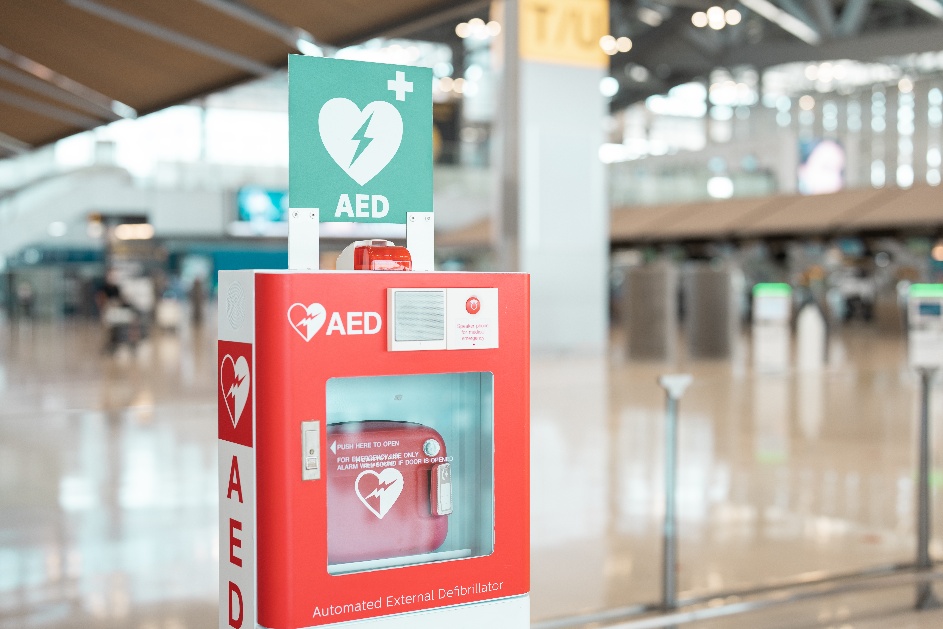

Enhancing AED Monitoring
with Innovative Cellular Solution
Customer Introduction
Catering to businesses that own multiple AEDs, Annuvia provides monthly checks to ensure these lifesaving devices are operational. Malfunctioning AEDs can cause businesses to lose their Good Samaritan exemption and incur liability. The company needed help developing a wireless AED monitor device.
Problem/Goal
- The status of multiple AEDs must be checked and recorded monthly, but they can be hard to locate.
The solution will facilitate both automated and manual checks without interference. The status for all AEDs can be transmitted automatically.
- The status must be sent from locations that are difficult for wireless communication. Wired communication is impractical, and cellular communications consume a lot of power.
Develop an energy-efficient, wireless communication solution that ensures reliable status transmissions from challenging locations without relying on impractical wired solutions.
- Frequent battery replacements due to short lifespan and widespread device locations lead to high costs.
The device will operate efficiently for at least two years on a single set of batteries.
- AEDs are kept in various places, such as the trunk of a police car or a brightly lit building, affecting the device's operation.
Engineer a device that functions reliably across various environments, ensuring uninterrupted monitoring.

Walt Maclay, Voler Systems President, Speaks at the IIoT Gizmos & Gadgets Wireless Communications Alliance (WCA) Webinar
During the WCA Gizmos & Gadgets Webinar, Walt Maclay, President of Voler Systems, captivated the audience with his valuable insights on the latest wearable devices. Take a moment to watch this 7-minute video and discover the groundbreaking advancements in the Industrial Internet of Things (IIoT) that are reshaping industries.


Why is Bluetooth So Expensive:
How Can I Save My Company Money?
Short Answer:
It’s true interoperability and you can save thousands with a Bluetooth Qualification Consultant (BQC).
Bluetooth SIG
Qualification through the Bluetooth Special Interest Group (Bluetooth SIG) can be perceived as expensive for several reasons: The Bluetooth SIG requires rigorous testing and certification. There are strict testing and certification processes to ensure that Bluetooth products meet industry standards and, above all, interoperability requirements. This level of scrutiny requires specialized equipment, facilities, and expertise, which contribute to the overall cost.
The quality assurance process is designed to ensure that Bluetooth devices work reliably, minimizing the risk of interoperability issues and potential harm to end-users. This requires comprehensive testing and quality assurance measures, which add to the cost.
Let Voler’s experts advise whether you can use a pre-approved module to reduce the qualification expense.


The Austin, Texas Networking Event is Coming Up!
📍 Austin, Texas 🗓️ Monday, December 11th 4:30 - 8:30 PM Central Time
Come join us at the Speakeasy Lounge in Austin, Texas for a memorable evening filled with your favorite drinks, mouthwatering food, and meaningful conversations with fellow networking enthusiasts who share your passion.
Drop Miguel Adao a note and he'll make sure to send you a calendar invite, or click the button below to sign up now.


The International Intelligent Health Virtual Summit 2023
Join The International Intelligent Health Virtual Summit 2023 from Dec. 11 to 15, 2023.
 Voler has helped many premier clients turn device ideas into reality. Whether you are looking for Medical Device or Wearable Technologies, Industrial IoT Device Designs, Electronic Support, Hardware/Firmware/Software, Wireless, Sensors, Motion Control, Microprocessors or FPGA Development, Voler can help you along the journey – always with a focus on keeping risks low, and keeping projects on-time, on-budget, and easy to manufacture.
Voler has helped many premier clients turn device ideas into reality. Whether you are looking for Medical Device or Wearable Technologies, Industrial IoT Device Designs, Electronic Support, Hardware/Firmware/Software, Wireless, Sensors, Motion Control, Microprocessors or FPGA Development, Voler can help you along the journey – always with a focus on keeping risks low, and keeping projects on-time, on-budget, and easy to manufacture.